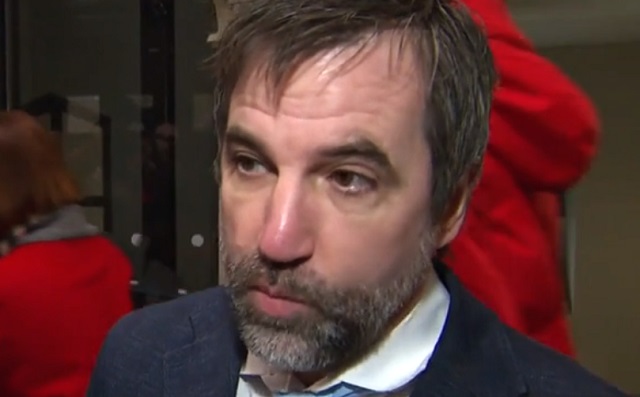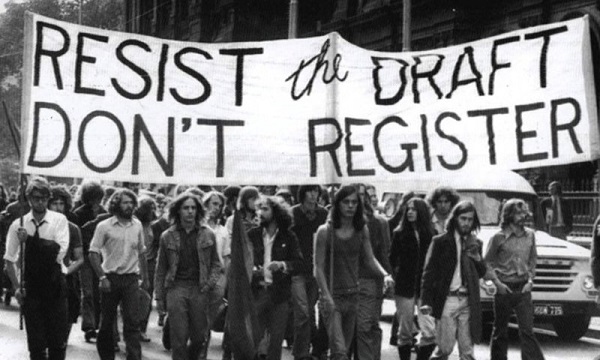Alberta
Alberta, Ontario premiers blast gov’t minister for remarks on slashing federal funds for new roads

From LifeSiteNews
Danielle Smith suggested that Environment Minister Steven Guilbeault ‘return to the real world’ and Doug Ford said his province will build roads on its own.
Premiers Danielle Smith of Alberta and Doug Ford of Ontario tore into Canadian Environment Minister Steven Guilbeault after he said the federal government would no longer fund any road construction projects and instead funnel the savings to “climate change” projects that promote people walk instead of drive.
“So now our Environment Minister wants to cut federal funding for roads … because we should all just walk more,” Smith wrote on X (formerly Twitter) Tuesday in reaction to a news report about the minister’s comments.
“Does this minister understand that most Canadians don’t live in downtown Montreal? Most of us can’t just head out the door in the snow and rain and just walk 10km to work each day.”
Smith then said to Guilbeault, “Can we return to the real world Minister @s_guilbeault?”
So now our Environment Minister wants to cut federal funding for roads…because we should all just walk more.
Does this minister understand that most Canadians don’t live in downtown Montreal? Most of us can’t just head out the door in the snow and rain and just walk 10km to… pic.twitter.com/gkX5TTtd91
— Danielle Smith (@ABDanielleSmith) February 13, 2024
Guilbeault made the comments on Tuesday at a transit conference in Montreal, saying, “Our government has made the decision to stop investing in new road infrastructure.”
“Of course we will continue to be there for cities, provinces and territories to maintain the existing network, but there will be no more envelopes from the federal government to enlarge the road network,” he added.
Smith has been battling the minister for the last few months over his extreme climate change policies that seek to destroy Alberta’s oil and gas sector.
Guilbeault’s reasoning for stopping funding to build roads was that according to an “analysis” his office did the current network is “perfectly adequate to respond to the needs we have” and that investing in public transit can help them achieve his “goals of economic, social and human development without more enlargement of the road network.”
On Wednesday, Guilbeault tried to backtrack on his Tuesday comment about roads, saying he was only referring to the federal government’s plan to stop funding only some road projects.
Ford says he is ‘gobsmacked’ by Guilbeault’s road defunding comments
Ford said his province would continue to build roads on its own.
“I’m gobsmacked. A federal minister said they won’t invest in new roads or highways,” Ford wrote on X.
“He doesn’t care that you’re stuck in bumper to bumper traffic. I do. We’re building roads and highways, with or without a cent from the feds.”
Saskatchewan Premier Scott Moe also took a shot at Guilbeault, saying the federal government would no longer fund new road projects and that the minister is “out of touch” with “reality.”
“Millions for ArriveCan, not one more federal dollar for new roads. Guilbeault wants us all to walk everywhere. The Trudeau government gets more out of touch with reality every day,” Moe wrote Wednesday on X.
The reality is that Canada, the second largest country in the world by land mass, has only one four-lane highway that connects the West Coast to the East. However, the TransCanada highway past Manitoba goes down to only two lanes.
To date, the federal government under Prime Minister Justin Trudeau has spent about $30 billion in promoting public transit as well as approximately $400 million to promote walking, e-bikes, roller blades, cycling, and other transportation means, which for most of the year due to winter are not feasible for most.
Also, the Trudeau government has attacked gasoline and diesel cars, even though Guilbeault said on Tuesday that “(w)e must stop thinking that electric cars will solve all our problems.”
Just before Christmas, Guilbeault announced the “Electric Vehicle Availability Standard.” The plan is to mandate that all new cars and trucks by 2035 be electric, which would in effect ban the sale of new gasoline- or diesel-only powered vehicles after that year.
Smith noted that when it comes to Trudeau’s EV mandate, “Ottawa is trying to force increased demands on the electricity grid while simultaneously weakening Alberta’s and other provinces’ grids through their federal electricity regulations.”
Since taking office in 2015, Trudeau has continued to push a radical environmental agenda like the agendas being pushed the World Economic Forum’s “Great Reset” and the United Nations’ “Sustainable Development Goals.”
The reduction and eventual elimination of the use of so-called “fossil fuels” and a transition to unreliable “green” energy has also been pushed by the World Economic Forum – the globalist group behind the socialist “Great Reset” agenda – an organization in which Trudeau and some of his cabinet are involved.
The reality of Trudeau’s push for so-called renewable energy showed itself just over a month ago after Alberta’s power grid faced near certain collapse due to a failure of wind and solar power. Many called out the Trudeau government’s green energy agenda that is attempting to phase out carbon-based power in favor of “renewables” as the reason for the near failure.
Alberta
Made in Alberta! Province makes it easier to support local products with Buy Local program

Show your Alberta side. Buy Local. |
When the going gets tough, Albertans stick together. That’s why Alberta’s government is launching a new campaign to benefit hard-working Albertans.
Global uncertainty is threatening the livelihoods of hard-working Alberta farmers, ranchers, processors and their families. The ‘Buy Local’ campaign, recently launched by Alberta’s government, encourages consumers to eat, drink and buy local to show our unified support for the province’s agriculture and food industry.
The government’s ‘Buy Local’ campaign encourages consumers to buy products from Alberta’s hard-working farmers, ranchers and food processors that produce safe, nutritious food for Albertans, Canadians and the world.
“It’s time to let these hard-working Albertans know we have their back. Now, more than ever, we need to shop local and buy made-in-Alberta products. The next time you are grocery shopping or go out for dinner or a drink with your friends or family, support local to demonstrate your Alberta pride. We are pleased tariffs don’t impact the ag industry right now and will keep advocating for our ag industry.”
Alberta’s government supports consumer choice. We are providing tools to help folks easily identify Alberta- and Canadian-made foods and products. Choosing local products keeps Albertans’ hard-earned dollars in our province. Whether it is farm-fresh vegetables, potatoes, honey, craft beer, frozen food or our world-renowned beef, Alberta has an abundance of fresh foods produced right on our doorstep.
Quick facts
- This summer, Albertans can support local at more than 150 farmers’ markets across the province and meet the folks who make, bake and grow our food.
- In March 2023, the Alberta government launched the ‘Made in Alberta’ voluntary food and beverage labelling program to support local agriculture and food sectors.
- Through direct connections with processors, the program has created the momentum to continue expanding consumer awareness about the ‘Made in Alberta’ label to help shoppers quickly identify foods and beverages produced in our province.
- Made in Alberta product catalogue website
Related information
Alberta
Province to expand services provided by Alberta Sheriffs: New policing option for municipalities

Expanding municipal police service options |
Proposed amendments would help ensure Alberta’s evolving public safety needs are met while also giving municipalities more options for local policing.
As first announced with the introduction of the Public Safety Statutes Amendment Act, 2024, Alberta’s government is considering creating a new independent agency police service to assume the police-like duties currently performed by Alberta Sheriffs. If passed, Bill 49 would lay additional groundwork for the new police service.
Proposed amendments to the Police Act recognize the unique challenges faced by different communities and seek to empower local governments to adopt strategies that effectively respond to their specific safety concerns, enhancing overall public safety across the province.
If passed, Bill 49 would specify that the new agency would be a Crown corporation with an independent board of directors to oversee its day-to-day operations. The new agency would be operationally independent from the government, consistent with all police services in Alberta. Unlike the Alberta Sheriffs, officers in the new police service would be directly employed by the police service rather than by the government.
“With this bill, we are taking the necessary steps to address the unique public safety concerns in communities across Alberta. As we work towards creating an independent agency police service, we are providing an essential component of Alberta’s police framework for years to come. Our aim is for the new agency is to ensure that Albertans are safe in their communities and receive the best possible service when they need it most.”
Additional amendments would allow municipalities to select the new agency as their local police service once it becomes fully operational and the necessary standards, capacity and frameworks are in place. Alberta’s government is committed to ensuring the new agency works collaboratively with all police services to meet the province’s evolving public safety needs and improve law enforcement response times, particularly in rural communities. While the RCMP would remain the official provincial police service, municipalities would have a new option for their local policing needs.
Once established, the agency would strengthen Alberta’s existing policing model and complement the province’s current police services, which include the RCMP, Indigenous police services and municipal police. It would help fill gaps and ensure law enforcement resources are deployed efficiently across the province.
Related information
-

 Business2 days ago
Business2 days agoChina, Mexico, Canada Flagged in $1.4 Billion Fentanyl Trade by U.S. Financial Watchdog
-

 espionage2 days ago
espionage2 days agoEx-NYPD Cop Jailed in Beijing’s Transnational Repatriation Plot, Canada Remains Soft Target
-

 2025 Federal Election2 days ago
2025 Federal Election2 days agoBREAKING from THE BUREAU: Pro-Beijing Group That Pushed Erin O’Toole’s Exit Warns Chinese Canadians to “Vote Carefully”
-

 Daily Caller2 days ago
Daily Caller2 days agoTrump Executive Orders ensure ‘Beautiful Clean’ Affordable Coal will continue to bolster US energy grid
-

 Daily Caller2 days ago
Daily Caller2 days agoDOJ Releases Dossier Of Deported Maryland Man’s Alleged MS-13 Gang Ties
-

 2025 Federal Election2 days ago
2025 Federal Election2 days agoAllegations of ethical misconduct by the Prime Minister and Government of Canada during the current federal election campaign
-

 Energy2 days ago
Energy2 days agoStraits of Mackinac Tunnel for Line 5 Pipeline to get “accelerated review”: US Army Corps of Engineers
-

 Opinion2 days ago
Opinion2 days agoLeft Turn: How Viet Nam War Resisters Changed Canada’s Political Compass





